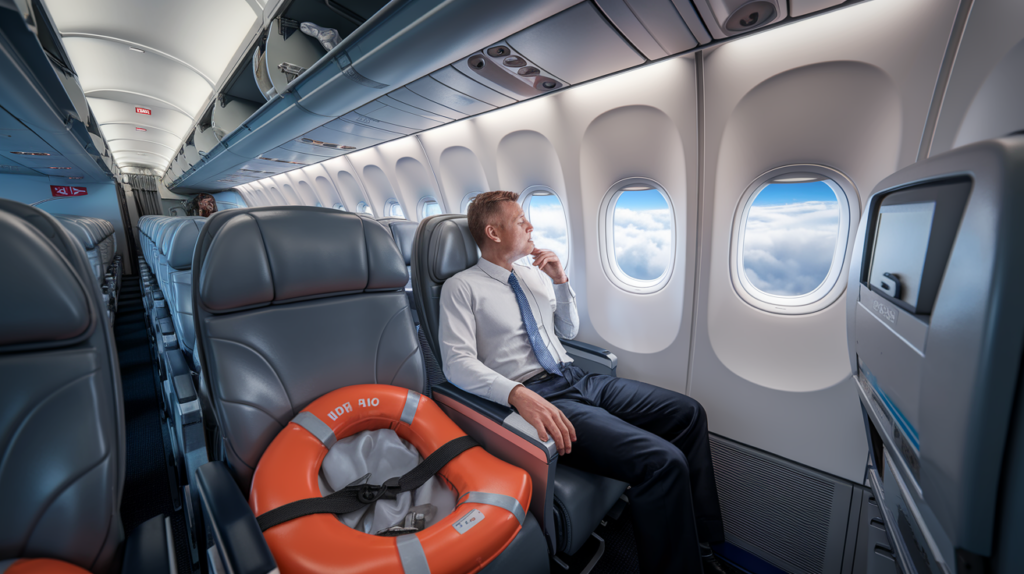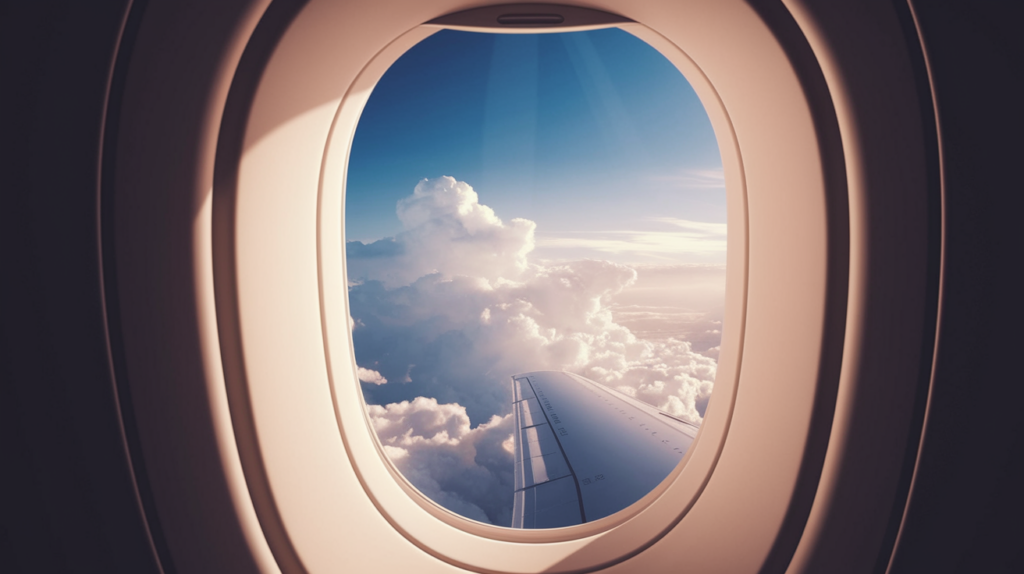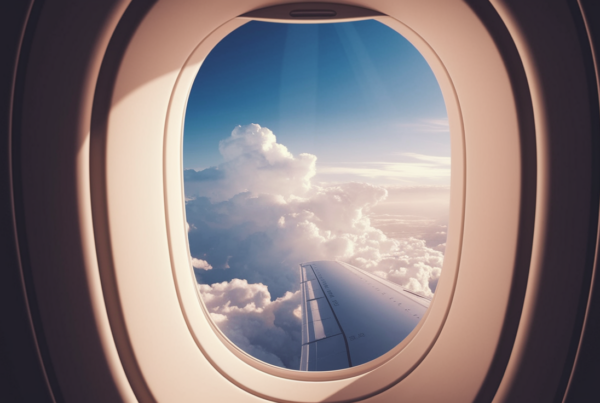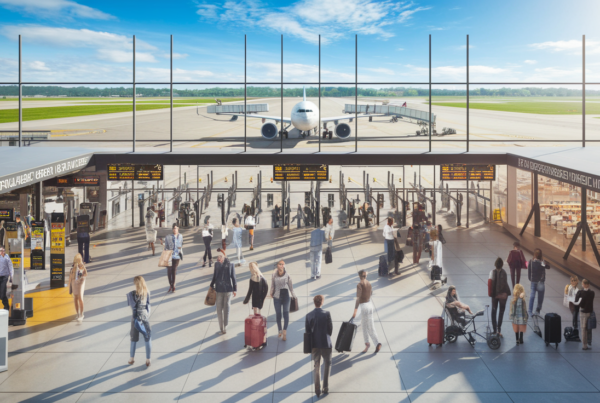During a flight, it is forbidden to open the windows during the night, for a number of reasons linked to the environment. safety and comfort. This preventive measure is designed to preserve the integrity of thethermal insulation and acoustics of the aircraft. Opening the windows can create sudden temperature variations and encourage the infiltration of cold air, compromising the stability of the cabin environment. In addition, it exposes occupants to a risk intrusion or disruption of sensitive equipment, increasing the danger of night flights. Respecting this rule helps to ensure an optimal and safe flying experience.
The practice of opening aircraft windows at night is not just a question of tradition or aesthetics. First and foremost, it's a set of safety measures. safety and comfort for passengers. Several technical and environmental factors explain this ban, guaranteeing a controlled and serene cabin experience.
Safety and visibility
At night, outside visibility is greatly reduced. Pilots and crew rely on navigation and instrument systems to keep the aircraft on course. Opening the windows can cause disturbances by diffusing stray light that can impair night vision, particularly during critical phases of flight. For further information, please consult the detailed articles on safety instructions for take-off and landing.
Preserving the cabin environment
The cabin atmosphere is designed to offer an optimum balance between light and rest. During the night, reduced external light allows passengers to relax and sleep. Untimely opening of windows disrupts this balance, injecting light variations that can disrupt circadian rhythms and induce increased fatigue. To maintain an atmosphere conducive to rest, we recommend keeping the windows closed.
Technical and aerodynamic impact
Modern porthole design incorporates advanced technical features. For example, the secrets of aircraft windows show how their shape contributes to pressure distribution and optimization of the aircraft's aerodynamics. Any unexpected opening could theoretically alter these parameters, risking disruption of the aircraft's overall stability. In addition, certain systems, such as the importance of opening blindsThe new "light" and "light" models demonstrate how light control is vital to flight safety.
Contributions of new aeronautical technologies
The integration of cutting-edge technologies in the aeronautics industry is improving comfort and safety. Current projects show that even major manufacturers, such as Korean Air to acquire Boeing 777x aircraftIn addition to these innovations, we're focusing on innovations that make it unnecessary to open portholes to regulate the atmosphere. These technological advances ensure smooth navigation and improve the quality of interior lighting, even in the dark, while guaranteeing the well-being of passengers.
Passenger interaction and comfort
Alongside technical improvements, online reading and exchange platforms offer readers an enhanced experience thanks to an interface free of distracting advertising, ensuring smooth navigation. Users benefit from a instant feedback to share their feedback and experiences, while the authenticity of each intervention is verified by the validation of the pseudonymThis is the only way to ensure that no one can intervene under someone else's identity. Personal stories, such as the moving moment when a couple exchanged vows mid-airThese are just a few examples of the quality of the experience, while respecting these strict guidelines.
Considerations on opening portholes at night
| Element | Explanation |
|---|---|
| Security | Reduce the risk of incidents by limiting uncontrolled exposure. |
| Pressurization | Maintain a stable pressure for a preserved environment. |
| Climate control | Ensuring controlled temperature during periods of low visibility. |
| Privacy | Guaranteeing privacy spaces by limiting outdoor exposure. |
| Regulatory standards | Respect the safety standards regulations. |
| Operational management | Enable centralized management and optimal system control. |
| Reduced visibility | Reduce the problems associated with low brightness nocturnal. |
| Stability | Ensuring coherent environment and stable overnight. |
| Protection | Preventing degradation of integrated security. |
| Intrusion prevention | Avoid all outside interference that could compromise safety. |
On the same theme
In the world of air transport, safety remains a paramount concern. Various studies indicate that, to maximize the chances of survival in the event of an accident, opting for a seat at the rear of the aircraft could be a wise choice. In fact,...
The secrets of aircraft windows: why is the oval shape essential?
Oval-shaped aircraft windows offer crucial technical advantages. Their design helps to distribute stresses and reduce stress points. This unique shape optimizes resistance to pressure variations in the cabin and during...






